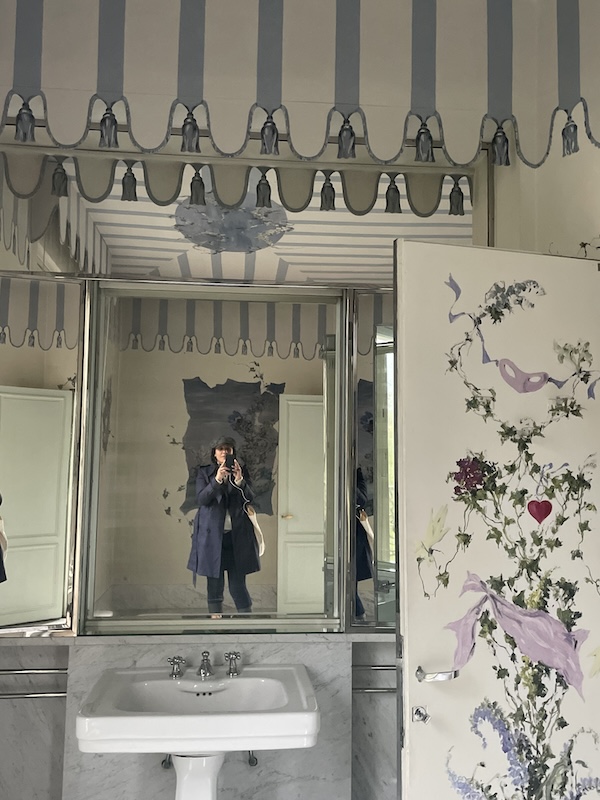C’est Very, Super, Très, Ouf.
Slowly, then suddenly, change happens. Watching it in real time is trippy AF. (And by trippy I mean unreal and unbelievably frustrating ouf!)

A café owner recently used the words “plus discret” to describe Americans over the past few months. I couldn’t believe it. Apparently, according to staff at multiple shops, we’re—on the whole—less loud, less obnoxious, and less demanding than usual. So hey, we’ve got that going for us. Let’s keep it that way, yeah? Even after this regime.
But while that might be a good thing, it’s also a deeply troubling one.
If you had any doubt about our international reputation, trust me—it’s worse than you thought. Europeans understand that people are not their governments. Most cultures do, because history teaches them that leaders rarely reflect the will of the people. It’s mainly in the U.S. that we confuse individuals with organizations and assume everyone from a country is the same.
The fact that Americans here are acting “less foolish” suggests some of us think a quick fix will solve the image problem. Spoiler alert: it won’t. If we want to be taken seriously, the humility and improved behavior have to stick—long after this administration.
“It’s been 80 years since the big war, and 20 years since the last one” a Montmartre cafe owner informs me.
The owner continues that since the start of the year the feeling has been that those that want war are in the lead. What hangs in the air is the U.S. is now not there to help.
What hangs in the air the silence: everyone is vulnerable to the worst interests. Danger lingers. It’s very present.
Everyone hopes it won’t be that, but in the charming, storied streets and honest and cafes that still celebrate World War I and II anniversaries, the hope is not enough. That too hangs in the air.
What Americans Are About to Start Feeling
(And What Others Already Do)
I remember traveling to Mexico City in 2016 with a friend—both of us lawyers, both of us Sagittariuses lol—for a long weekend. Neither of us spoke Spanish, and it was our first time there, so we played it safe: booked a nice hotel in a quieter part of town, even if it meant missing some of the “cooler” neighborhoods. We had the privilege to choose that, and honestly, it seemed smart.
But once we arrived, we realized we’d overcorrected—hard. (We stayed at an Intercontinental for Christmas’s sake. Still, a great trip.)
What surprised us most? The number of people who said we were brave.
Brave? To visit Mexico City? One of the most vibrant cities in the world, rich in culture, food, art, and yes—a sizable American expat community. It’s our neighbor. The reaction said more about American ignorance than anything else.
But legacy media headlines—about gangs, cartels, danger—combined with a deep lack of self-education, shaped that narrative. So many said, “Just stay in a good area.” I’d reply, “Yes, like I do in New York, Chicago, or L.A.” Like, are you serious?
The exceptionalism is exhausting.
And the worst part? The impact on locals. We met so many kind, talented people whose livelihoods depended on tourism—yet were struggling, in a city filled with world-class restaurants, museums, and neighborhoods, simply because Americans didn’t show up.
Ignorance and isolation don’t just hurt our worldview—they hurt other people’s economies, dignity, and growth. And while Americans haven’t traditionally cared much about that, they might soon. Because we’re not as insulated anymore.
Being American in France Right Now: Real Talk It’s… Dark
The French have always been globally aware—but they’re also historically aware. They know how fast things shift. They’ve seen cities torn apart by war, political upheaval, financial collapse.
Slowly, then suddenly.
That phrase has been echoing in my head a lot lately.
Sometimes, I wonder what it felt like to be an American in Paris before the U.S. got involved in World War II. To be a journalist, artist, or expat here, knowing help was needed, and that your home country was choosing not to step in.
Be careful what you wonder about.
Because now? We’re the ones who need help. And people are watching.
It’s one thing to handle the looks Parisians give Americans on a regular day. You know the one—a weary, judgmental parent watching a child fumble with something they should understand by now. How you tie your scarf? Wrong. How you add crème fraîche to your tarte Tatin with your tiny spoon? Also wrong. They’re always judging, and you’re always behind.
That’s just life as an American here. Usually.
But now?
Now, there’s no visible judgment. No amused sigh. No silent critique.
Just apathy.
They don’t have the energy to judge us anymore. And somehow, that’s worse.